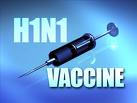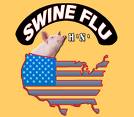
H1N1 vs. Seasonal Flu What Shots Should we do….. Diabetes, Diabetic, Persons with Diabetes, Asthma.
Melanie Nathan, Director Communications & Public Policy, Diabetes Health:-
While the virus may not be allusive, clarity as to the difference between the symptoms of Seasonal Flu and the H1N1 virus will have us befuddled. While one ponders this daunting challenge, now that flu season is nigh, an article by CNN Medical Producer, Val Willingham, entitled “Cold? Flu? H1N1? How Can You Tell the Difference,” not only begs the question but also subtracts a piece from the puzzle, failing to provide the much needed clarity. If the number of actual flu cases conforms to the expectation of the CDC , and we receive no further definition, US hospitals will have much to cope with, as patients stream in with ailments resembling H1N1 virus. 
In quoting the differences, as presented in the Article, by Willingham, one can see how difficult it will be to make the distinction and so the question remains as to how this will all play out. To quote this inadequate attempt:
– “Symptoms of the cold are more common, and can make the patient miserable for three to five days. A patient usually has a stuffy nose, congestion, some body aches and a growing cough. According to the CDC seasonal flu and H1N1 symptoms consist of fever, more painful body aches, dry cough, diarrhea and severe fatigue. It’s hard, without testing, to tell apart the seasonal strain of flu from the H1N1 variety.”
The Title of the Article belies its revelation and when reaching the point of abject frustration one finally encounters a sentence that may do the job. Unfortunately the quotation of Dr. Shmuel Shoham, Infectious Disease Specialist from Washington Hospital center merely adds to the uncertainty:
“People need to take notice when they begin to feel bad. If they start to have respiratory problems, or are dehydrated because of a bug, they should go to the doctor. It could be H1N1 or seasonal influenza; some people with influenza can get very sick and could end up in the hospital if it’s not taken care of.”
The failure to provide the community with at least one distinguishing characteristic common to all cases of H1N1, serves only to send people to the hospital anyway, and while many will wrestle with the decision of when to go, others will be lined up for testing. The only reasonable conclusion is that one cannot rely on definitions or self diagnosis when it comes down to it.
 The failure to provide a measure of clarity simply enhances the case for inoculation. It is clear that those in high risk categories should receive BOTH FLU SHOTS – Seasonal and H1N1, without excuse or delay.
The failure to provide a measure of clarity simply enhances the case for inoculation. It is clear that those in high risk categories should receive BOTH FLU SHOTS – Seasonal and H1N1, without excuse or delay.
“People at greatest risk for catching H1N1 include young people ages 6 months to 25 years, pregnant women, and people with chronic health conditions like asthma, diabetes or heart and lung disease. The CDC recommends that these groups — as well as health care workers — get vaccinated first. The seasonal influenza vaccination is especially important for people at high risk of serious flu complications, according to the CDC, including children ages 6 months to 18 years, people with immune system problems, women who plan on being pregnant during the flu season, those 50 years and older and health care workers”
When asked this question in an interview reported in a USA Today BLOG:
“I’m a 38-year-old male with type 1 diabetes. Good health, no complications and rarely get sick. Do I really need to get a flu shot this year given the scarcity? “
Dr. Shoham answered, “People with type I diabetes should be vaccinated. For one you are at risk for developing serious complications of influenza including those that require hospitalization. Also if you were to get influenza and get a severe infection you may infect many others. The Centers for Disease Control and prevention (CDC) recommends that “Adults and children 2 years of age and older with chronic metabolic diseases (including diabetes), kidney diseases, blood disorders (such as sickle cell anemia), or weakened immune systems, including persons with HIV/AIDS” be vaccinated with the injectable vaccine.”
In conclusion as we provide our best citizenry foot forward, prevention is always the ultimate goal and so in unison we should all be boosting our immune systems with healthy eating and lifestyle, drinking much more water and without exception, constantly washing our hands, coughing and sneezing into our elbows (not hands).
THINGS TO DO:
NOTE: The CDC recommends that people who need the vaccine but are unable to obtain it from their healthcare provider contact their local health department.
Take the FLU QUIZ H1N1 – http://www.education.com/quiz/h1n1-swine-flu/?cid=55000.0069457016&s_kwcid=TC|8363|h1n1||S|e|3852453835&gclid=CJ7b97j_gp0CFSQeDQodomPJbg Read
 Swine Flu and Pregnancy: http://pagingdrgupta.blogs.cnn.com/2009/08/05/swine-flu-vaccine-for-pregnant-women/
Swine Flu and Pregnancy: http://pagingdrgupta.blogs.cnn.com/2009/08/05/swine-flu-vaccine-for-pregnant-women/
Protecting Your Family http://www.cnn.com/SPECIALS/2009/h1n1/
Worldwide Concerns http://www.cnn.com/SPECIALS/2009/h1n1/
References: http://cgi1.usatoday.com/mchat/20041014007/tscript.htm
http://www.cnn.com/2009/HEALTH/09/18/h1n1.staying.healthy/index.html





















 PoochParkWear customizes hoodies and t-shirts, the good, the naughty, the in between, whether proud or quirky let them be seen. We also offer biker jackets, croc or pleather collars, a variety of collar charms, and our special Zinja beaded collars made by a co-op of HIV-positive South African women, the Sisonke women who weave the beads onto the collars.
PoochParkWear customizes hoodies and t-shirts, the good, the naughty, the in between, whether proud or quirky let them be seen. We also offer biker jackets, croc or pleather collars, a variety of collar charms, and our special Zinja beaded collars made by a co-op of HIV-positive South African women, the Sisonke women who weave the beads onto the collars.

Leave a Reply